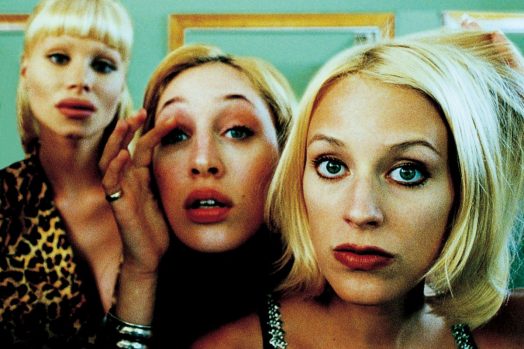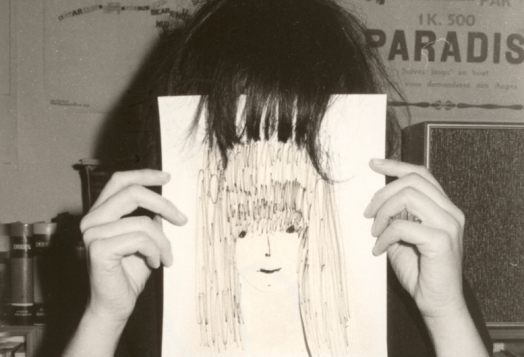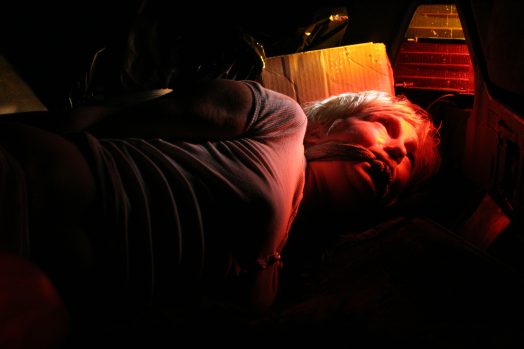Über-Bilder: Projected Feminity(ies)

Models © MR-Film
A joint special by the Diagonale, Filmarchiv Austria, the Austrian Film Museum, and the ORF Archive.
The Diagonale’s historical special, which will focus on projections of feminity(ies) in 2019, is breaking new ground as the first “program of many.” It would be hard to find another theme that the film branch has given more attention to in recent years than that of the relationship of the sexes, in general, and the question of the role of women, in particular. Currently, the debate about women in film revolves largely around the issue of whether and how women make pictures, in both a cultural and film-political sense – that is, quotas, concrete role assignments, and pay. At the same time, women are also simultaneously making pictures – even when films are made by men: pictures of women. Or: notions of femininity and femininities.
Starting from an essay in which author Michelle Koch and film journalist Alexandra Zawia sketch out their thoughts on the status quo of the debates, the Diagonale has invited – along with the authors and the partner archives – more than ten personalities familiar with Austrian film, to react to the essay, each in a separate program slot: Whether they agree, reject, comment on, or supplement the essay is left up to those invited. With the cooperation of Austria’s central archives for motion picture – Filmarchiv Austria, Austrian Film Museum, and the ORF Archive – selected films from all genres, lengths, and historical epochs will be screened.

Das Schreiben und das Schweigen © Carmen Tartarotti
Film program: Über-Bilder: Projected Feminity(ies)
Selected by Michelle Koch (author)
— Models (D: Ulrich Seidl, AT 1998)
— Supporting film: sexy (D: Kurdwin Ayub, AT 2013)
Selected by Amina Handke (artist) and Aslı Kışlal (actress and stage director)
— Die Ahnfrau (D: Louise Kolm-Fleck, AT 1919)
Live commentary by Amina Handke and Aslı Kışlal
— Before the screening: book presentation of “Louise, Licht und Schatten. Die Filmpionierin Louise Kolm-Fleck” by Uli Jürgens (Mandelbaum Verlag, Vienna 2019)
Selected by Karola Gramann (film curator, lecturer at the Goethe University Frankfurt and also artistic director of the Kinothek Asta Nielsen) and Heide Schlüpmann (philosopher and film scholar)
— Short film program “Es hat mich sehr gefreut”
——— Anna (D: Linda Christanell, AT 1980/81)
——— Die Geburt der Venus (D: Moucle Blackout, AT 1970-72)
——— The Four Corners of the World (D: Lisl Ponger, AT 1981)
——— Selfportrait (D: Maria Lassnig, AT 1972)
——— Kugelkopf (D: Mara Mattuschka, AT 1985)
——— Super-8-Girl Games (D: Angela Hans Scheirl, Ursula Pürrer, AT 1985)
——— Gezacktes Rinnsal schleicht sich schamlos schenkelnässend an (D: Angela Hans Scheirl, Ursula Pürrer, AT 1985)
——— Es hat mich sehr gefreut (D: Mara Mattuschka, AT 1987)
Selected by Diskollektiv: Andrey Arnold (film journalist for, among others, Die Presse, jugendohnefilm.com, perlentaucher.de), Valerie Dirk (film scholar), Iris Fraueneder (film scholar), Martin Thomson (film scholar and critic, previously for Schnitt and Falter, among others, now for Die Presse), Ulrike Wirth (film scholar)
— Trouble Feature:
Die Praxis der Liebe (D: Valie Export, AT 1984/85) and international surprise film
An experimental double event, followed by a discussion
Selected by Alexandra Seibel (film journalist and author)
— Vorstadtvarieté – Die Amsel von Lichtental (D: Werner Hochbaum, AT 1935)
— Maskerade (D: Willi Forst, AT 1934)
Selected by Alexandra Zawia (film journalist) and Camillo Foramitti (curator, director of the ORF Archive editorial staff/multimedia archive)
— Ein ganz normaler Tag from the ORF series “Geschichten aus Österreich” (D: Heide Pils, AT 1977)
— Supporting film 1: Edited clips from the ORF show Club 2: “Frauenbilder, Bilderfrauen – Das Bild der Frau in den Medien” (AT 1981)
— Supporting film 2: Clips from the ORF women’s show Prisma (AT 1981)
In conclusion: Diagonale im Dialog with Heide Pils, Trautl Brandstaller, and Waltraud Langer
Selected by Stefan Ruzowitzky (filmmaker)
— In 3 Tagen bist du tot (D: Andreas Prochaska, AT 2006)
Selected by Birgit Kohler (co-director of Arsenal – Institute for Film and Video Art in Berlin and currently interim head of the Berlinale Forum section)
— Kurz davor ist es passiert (D: Anja Salomonowitz, AT 2006)
Selected by Felicitas Thun-Hohenstein (curator of the Austrian pavilion at the Venice Biennale 2019, author and professor at the Academy of Fine Arts Vienna) and Renate Bertlmann (artist, design of the Austrian pavilion at the Venice Biennale 2019)
— Short film program “FEMALE CODES”
——— Parole Rosette (D: Katrina Daschner, AT 2012)
——— … an exile … (D: Carola Dertnig, AT 2013)
——— Strangers (D: Carola Dertnig, AT 2013)
——— HORSE’S GLORY (D: Elisabeth von Samsonow, AT 2015)
——— AN OBJECT WITH A SHARP BEGINNING (D: Fanni Futterknecht, AT 2014)
Selected by Anja Plaschg (musician, Soap&Skin)
— Das Schreiben und das Schweigen (D: Carmen Tartarotti, AT/IT/DE 2009)

In 3 Tagen bist du tot © Filmladen Filmverleih
In addition, several films in the In Reference series are closely associated with the historical special: Otto Preminger’s Bonjour Tristesse, Günter Peter Straschek’s Hurra für Frau E., Hans-Jürgen Syberberg’s Romy – Portrait eines Gesichts, Emily Atef’s 3 Tage in Quiberon, Paul Poet’s My Talk with Florence (film concert with Alec Empire and DVD media book presentation), and a mutual short film program by the Medienwerkstatt Wien and the Golden Pixel Cooperative also link up thematically with the historical special.
Further reading on the historical special can also be found in the Diagonale’19 catalogue, published by Czernin Verlag. The catalogue contains an essay by Michelle Koch and Alexandra Zawia as well as texts by the program organizers on the selected films.


